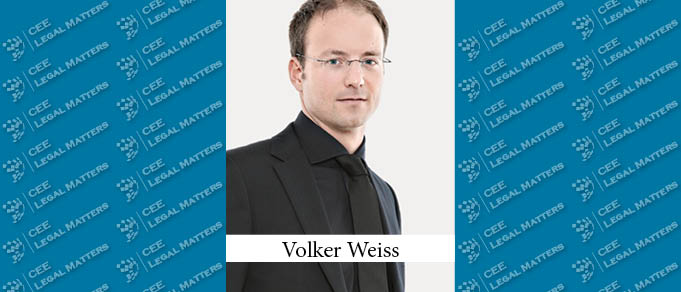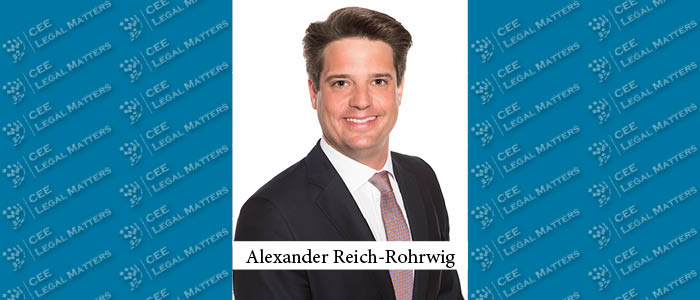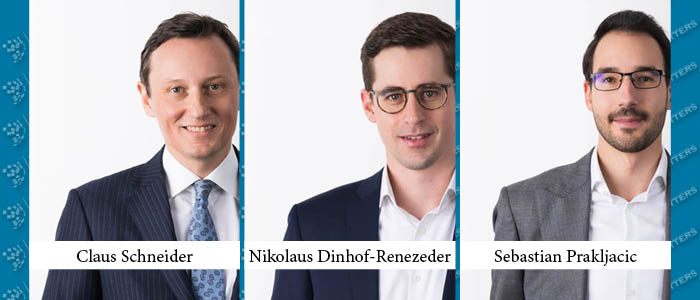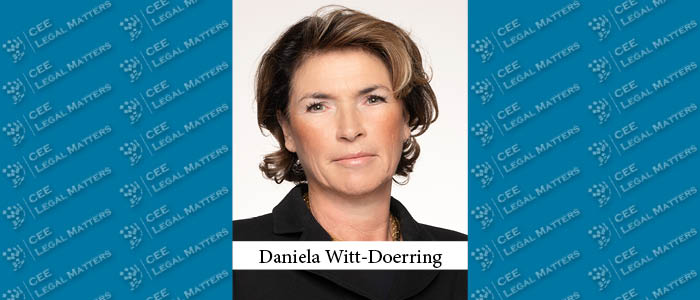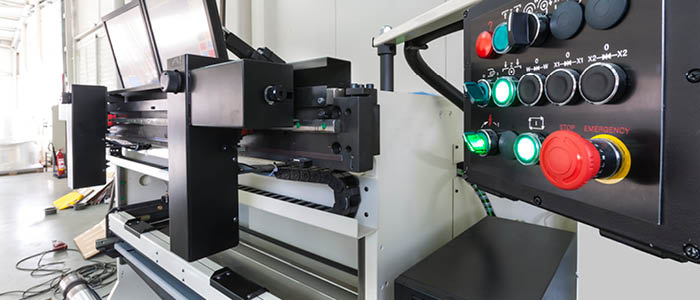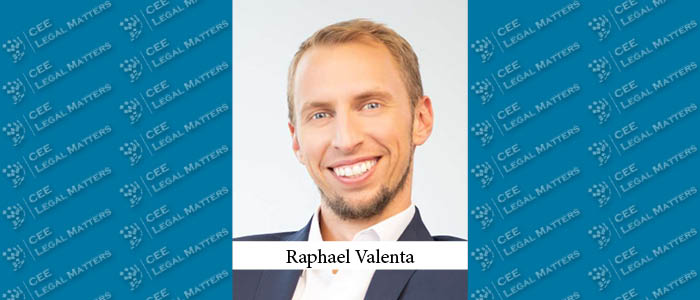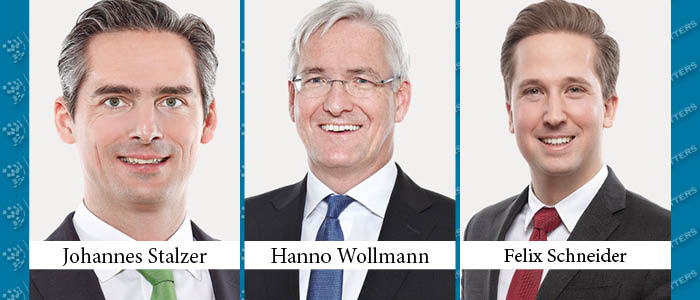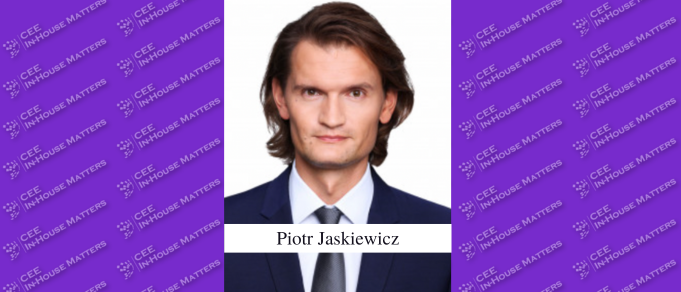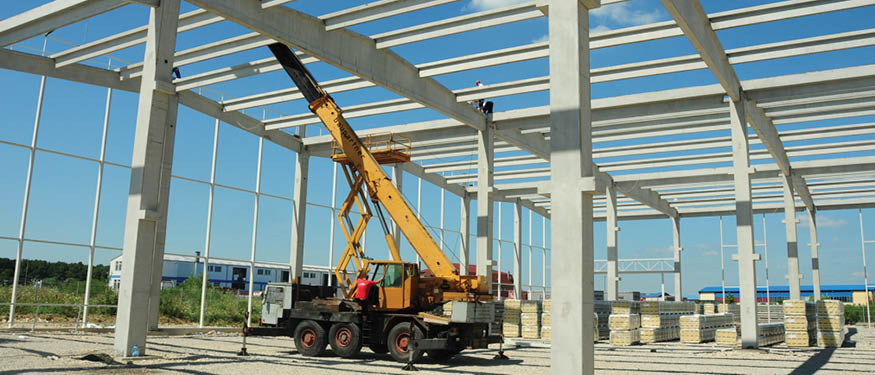On 12 July 2023 the general or ex officio tool of the FSR became applicable. The tool empowers the European Commission (EC) to investigate cases where foreign subsidies are suspected of having a distortive effect on the EU's internal market, even if they do not fall within the scope of the other two FSR tools (M&A tool and public procurement tool). This gives the EC a powerful instrument to tackle market distortions from subsidies granted by third countries.
Alexander Reich-Rohrwig Makes Partner at Cerha Hempel
Alexander Reich-Rohrwig has become a Partner in the Corporate Transactions team of Cerha Hempel.
Herbst Kinsky Advises Statkraft and Junction Growth on Investment in Efficient Energy Technology
Herbst Kinsky has advised Statkraft Ventures and Junction Growth Investors on their investment in EET-Efficient Energy Technology during its EUR 6.5 million series A financing round.
Wolf Theiss Advises Lenders and Hedge Counterparties on EUR 113 Million Financing for RML Infrastruktur
Wolf Theiss has advised UniCredit Bank Austria, CaixaBank, La Banque Postale, and Bondholders SL on a EUR 113 million syndicated financing for RML Infrastruktur for the roll-out, operation, and maintenance of an open-access fiber-to-the-home network in Austria's Liezen district. PHH reportedly advised Meridiam.
DSC Advises Geno EuropaFonds on Sale of Saturn Tower in Vienna
DSC Doralt Seist Csoklich has advised Geno EuropaFonds on its sale of the Saturn Tower office building in Vienna to the Wlaschek Foundation's Amisola Immobilien AG.
Cerha Hempel Advises Strabag on Sitec and Wieser Acquisitions
Cerha Hempel has advised Austria's Strabag on the acquisition of the Sitec Verkehrstechnik and Wieser Verkehrssicherheit road safety companies.
E+H and Freshfields Advise on Takko Fashion EUR 830 Million Financial Restructuring and Refinancing Transactions
E+H, working with Simpson Thacher & Bartlett, Gleiss Lutz, Loyens Loeff, and Linklaters, has advised the Takko Fashion group on its financial restructuring and refinancing transactions that saw its bondholders acquiring a majority stake in the group. Freshfields Bruckhaus Deringer, working with Arendt & Medernach, advised the ad hoc group of noteholders.
Closing: Macquarie Asset Management Minority Investment in Best in Parking Now Closed
On August 14, 2023, Binder Groesswang announced that Macquarie Asset Management's acquisition of a significant minority stake in Best in Parking AG (reported by CEE Legal Matters on May 10, 2023) had closed.
Wolf Theiss Advises JP Hospitality Investors Club on Madonna di Campiglio Hotel Lease Agreement
Wolf Theiss has advised the JP Hospitality Investors Club on a hotel lease agreement with Treasurests Hospitality. Suppan Spiegl Zeller reportedly advised Treasurests Hospitality.
Brandl Talos Advises Ring International Holding on TDR Capital’s Investment in Popeyes UK
Brandl Talos, working with Fladgate, has advised Ring International Holding on TDR Capital’s investment in Popeyes UK.
ESMA’s Public Statement on ESG in Prospectuses
On 11 July 2023, the European Securities and Markets Authority (“ESMA”) published a public statement (“ESMA Statement”) regarding sustainability-related disclosure requirements in prospectuses for both equity and non-equity securities.
Schoenherr and Wolf Theiss Advise on Neveon's Sale of Greiner Perfoam to Treves
Schoenherr has advised Greiner Group member Neveon Holding on the sale of its automotive division consisting of Greiner Perfoam and its subsidiaries to Treves. Wolf Theiss advised Treves.
A Shakeup of Austria's Real Estate: A Buzz Interview with Daniela Witt-Doerring of Weber & Co
In Austria, ESG issues are at the forefront, while the Viennese Building Code is being updated to promote environmentally friendly measures, according to Weber & Co Partner Daniela Witt-Doerring.
Closing: Semperit Acquisition of Rico Group Now Closed
On August 1, 2023, Binder Groesswang announced that Semperit Aktiengesellschaft Holding's acquisition of the Austrian Rico Group (reported by CEE Legal Matters on May 9, 2023) had closed.
Binder Groesswang and Wolf Theiss Advise on Wendel Sale of Constantia Flexibles to One Rock Capital
Binder Groesswang, working with Willkie Farr & Gallagher, has advised French investment company Wendel and other shareholders on their sale of Constantia Flexibles to One Rock Capital Partners. Wolf Theiss, working with Latham & Watkins, advised One Rock. Hamburg's Klawitter Neben Plath Zintler reportedly advised Wendel as well.
Raphael Valenta Rejoins KWR as Junior Partner
Raphael Valenta has rejoined the KWR Karasek Wietrzyk Rechtsanwaelte Corporate Law team in Vienna as a Junior Partner.
PHH and Dentons Advise Kommunalkredit on EUR 37.5 Million Financing for 63-Megawatt PV Plant in Hungary
PHH and Dentons have advised Kommunalkredit on a EUR 37.5 million financing for the 63-megawatt Senyo photovoltaic plant in Hungary. CMS reportedly advised the project's commissioners, Green Source and Core Value Capital.
The Public Procurement Tool
The public procurement tool is intended to prevent foreign subsidies (as defined in Art. 3 FSR) from distorting competition in the internal market. This happens when companies are able to submit unduly advantageous bids that drive competitors unsupported by state funds out of the market, for example because they are subject to the strict prohibition of intra-EU State aid under Art. 107(1) TFEU. The need to counteract market-distorting subsidies from third countries is "particularly pronounced" in public procurement, since public contracts are financed with taxpayers' money.

